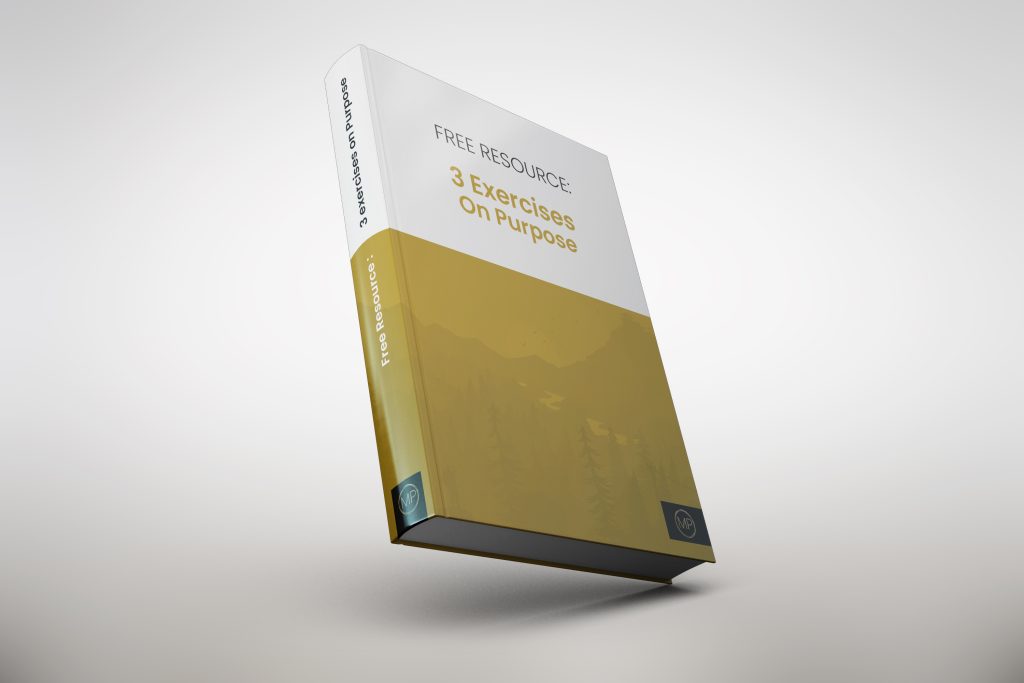You Are Good Enough And This Is Why
Introduction
“Perhaps our greatest “weakness” is that we don’t love ourselves for who we are, because it influences virtually everything we do, say and think” – The words of Hugo Alberts
A rejection, a mistake, an argument, a past trauma and other such life events can be painful. It is even possible to be sat quietly alone and a negative past memory, doubt or past trauma can cause our emotions to change. During these times we often make strong negative statements and our cognitive functioning narrows causing a negative spiral of negative thinking. We can become highly critical of ourselves.
We can say things including;
“I am not worthy”
“I don’t feel attractive enough to do this”
“I’ve had enough of life”
“Why can’t I do that or be like that”?
Two things I assure you are for certain;
- You ARE GOOD ENOUGH.
- The concept of COMMON HUNMANITY which will be explored below and more.
The challenge with such life events is not the event themselves but the relationship that we build with this event. Following on from this our next actions rather than reactions can help us be happier and grow as individuals. This article and Meaningful Paths will be your guide and show you why you are indeed good enough and how to explore Self-Acceptance. Our anxiety worksheets can help assist you with being kind to yourself.
What beliefs shape why you feel not good enough?

You are not your age, nor the size of clothes you wear.
You are not a weight, or the color of your hair.
You are not your name, or the dimples in your cheeks.
You are all the books you read, and all the words you speak.
You are your croaky morning voice, and the smiles you try to hide.
You’re the sweetness in your laughter, and every tear you’ve cried.
You’re the songs you sing so loudly when you know you’re alone.
You’re the places that you’ve been to, and the one that you call home.
You’re the photos in your bedroom, and the future you dream of.
You’re made of so much beauty, but it seems that you forgot.
When you decided that you were defined by all the things you’re not.
– The words of Erin Hanson.

As we grow from a young age we develop a concept called the self-as-story also known as our ego.
If we were asked to tell someone about ourselves our dialogue may sound something like;
“Hi my name is Rachael, I am a manager, I own a nice car, I am scared of heights and so on…”
We begin to place ourselves in boxes/domains and define ourselves by such things.
This in turn creates a process called self-esteem and when we do well in these domains we feel good about ourselves and it reinforces our identity and self-worth. When we face a challenge in these domains and we believe we ‘fail’ this can cause negative emotions and cause ruptures in our sense of identity and our self-worth. The very sense of who we believe we are has been severely damaged or even taken away from us.
If a man has a lot of wealth and he identifies himself as a successful businessman and that business failed he may very well fall into a depression due to his ‘identity’ being ‘taken’ from him.
If you identify yourself with luxury items and a nice car in your home town but then you go to another prosperous community your Self-as-story can feel threatened.
If you identify yourself as having a lot of knowledge then you may find it difficult to accept that you are wrong or to gracefully walk away from an argument as your story identifies itself as being knowledgeable and hence will fight to stay alive. It can result in a feeling of enough is enough.
If you identify yourself strongly within the domain of beauty then a continuous comparison via forms of social media to other ‘beautiful people’ will result in a continuous cycle of self-worth without you even being consciously aware if such a trap.
Our Self-story and ego will create internal chatter and this can cause us to believe that we are not good enough.
Our parents, families, teachers, friendships, politics, religion, the media and social media all influence our identity and self-worth.
Resilience teachings can be a great first step in helping you build a healthy relationship with life’s events.
The real life affects of these thoughts
Negative emotion caused by our self-worth can also result in negative action or no action at all. For example if you strongly identify yourself with beauty and you feel ‘unworthy’ then you may decide not to eat, over exercise and overly focus on your image. In addition to the physical, mental and spiritual harm this could do to you, it could also lead you to not focus your energy on other things that would make you happy such as family, friends, healthy activities, work, study and more.
This can cause a perpetual cycle and result in low self-esteem, low confidence and a lack of action towards our needs.
What does it mean to be good enough?
“Self-Acceptance is an individual’s acceptance of all his/her attributes, positive or negative” – Words by Morgado & Colleagues
Self-Acceptance is building a healthy relationship with the Self and not identifying ourselves with domains. We will learn more about this within this article.

You are good enough, we are all good enough; and here is why
Common Humanity:
Common Humanity is the exploration and realisation of all the experiences that we as human beings share. No matter what emotion you feel right at this moment in time or action you have taken; someone else on the planet will have or will be experiencing those emotions. Someone else in history and someone else in the future will have experienced the challenge you face and the emotions you experience. No matter what your age, gender, or culture we all share emotional experiences, relationship highs and lows, family joys and family challenges, acceptance and rejection, wins and losses, rising and falling, health and illness, youth and age, financial highs and lows, life and death, love, laughter, happiness.
You are good enough today and you can be good enough as you grow:
We can often suggest that we will be good enough when a measured outcome has been met for example:
“I will be good enough when I have this wage at my job.”
“I will be OK when I lose X lbs.”
“I will be fine when I find the perfect partner.”
Through the practice of Self-Acceptance we will build a healthy relationships with our Self and enjoy our journey of growth mindfully without a measured outcome.
Self-Acceptance is NOT:
. Self pity – the acknowledgement and process of the self shows great strength
. Acceptance of what is – the self as a process creates a growth mindset and an awareness of what actions to next take for your well-being and life goals. According to a study on self-compassion by Neff, Hseih, & Dejitthirat (2005); reported greater motivation for self-improvement and a devotion to more time studying for a test after an initial failure.
. Selfish – If we practice self-compassion as part of a process for self-acceptance then we will have the strength to help others.
. Rose Tinted Glasses – self-acceptance is actually quite the opposite and the process of self-acceptance creates a more harmonious and healthy relationship with who we are authentically. As a process it accepts our ‘weaknesses’ and creates a clearer road map for moving forward, healthier relationships and more.
Things to do when you don’t feel good enough
Exercise 1.
Please visit our page free app – Meaningful Paths on Apple IOS and Google Play stores. If you are new to meditations this is absolutely fine and you cans imply watch the meditation videos and listen to the words without needing to overly focus on closing your eyes or taking action. Just listen to the words, watch the videos and what will be will be. Our purposeful living eBook can also help with this.
Exercise 2.
Please practice using this phrase in your life:
“I am only human; I will learn; I will grow.”
Whenever you feel like you feel ‘worthless’ or you feel like you have made a mistake, calmly remind yourself that many people in history have felt the exact same feelings you feel right now and have taken the same actions as yourself. Calmly remind yourself that people today across the world are also experiencing the same feelings that you are also experiencing.
Place your hand on your heart and forgive yourself and wish others who feel the same Self-Acceptance, happiness and personal growth.
Exercise 3.
Please note having high self-esteem can also have many benefits including self-efficacy, positive emotions, elements of goal achievement and more. Here we are showing you the differences between self-acceptance and self-esteem and how you can find a more harmonious balance.
People with high levels of self-esteem have strong feelings of self-worth and individuals with low levels of self-esteem have feelings of low self-worth.
Thinking process = self-evaluation of your situation and also self-rating of how well you have performed in such a situation.
Those with high self-esteem rate themselves favorably within a domain and this can be problematic as he/she values themselves as a human being based on such a situation.
Therefore conditions must be met for the individual to feel ‘worthy.’
Does this individuals meet external or internal standards such as media being an external standard and beauty can be an internal standard? Both external and internal standards can act in a cycle and influence one another.
Confrontation with a weakness
Confrontation with a ‘weakness’ – Rejected by someone.
.
Feelings – Loneliness
.
Needs – Relatedness / Human Connection
.
Thoughts based on self esteem
“I am not worth being with/ how dare they”
Action – Self -Neglect – Isolating oneself
.
Versus thoughts based on self-acceptance
“Everybody gets rejected”
Action – Self-Care – Hanging out with friends.
Here we can see thoughts and actions based on our self-esteem versus thoughts and actions based on self-acceptance using the scenario that someone rejected you. As we can see the rejection causes a feeling and a need has not being met. We then have a choice on how we perceive this situation and our relationship with our self. We then can take healthy actions to get our needs met using self-acceptance rather than reacting based on self-esteem.
With self-acceptance the self is not devalued whereas with self-esteem the self is devalued by a rejection.
How to make someone else realise they are good enough?
- Try to empathise instead of telling them they will ‘get over it.’ You can say something along the lines of; “I appreciate how difficult this must be for you. I believe in you and I have seen you handle difficult situations before.”
- Empathise that this situation does not change their identity; “I understand that you must feel a strong sense of uncertainty right now, but this situation does not define you.”
- Practice Common Humanity with them.
- Share an experience you had that may not be the same situation but resulted in the same emotions /not feeling good enough.
- Explore their needs and take action with them to get their needs met.
How can you be good enough for someone?
- Focus your attentions on Self-Acceptance and build a healthy relationship with yourself.
- Be kind and compassionate to others even those who are negative towards you.
- Get your needs met in a healthy manner based on the exercise described earlier.
- This will in turn result in you realising that you are good enough and more people, love and opportunities will present themselves into your life due to you not attaching outcomes to your actions.
Conclusion
Take a moment and and picture planet earth.
Observe our beautiful rich blue planet.
Gradually float away from earth and see the immensity of the stars and space around our planet.
YOU MATTER!
The very fact that you are here on planet earth is in itself is a beautiful miracle.
Once we begin to picture life like a wave we will realise that we will rise and fall and we will ebb and flow. If we can begin to accept what is, learn what controllability we have in a given situation and also create a healthy relationship with life’s challenges then we will begin to realise that you are good enough. As we have learned this form of self-compassion and acceptance is not the same as being static. This healthy relationship with our self allows us to push our boundaries, continually grow and achieve our goals within a framework that promotes our well-being.
Thanks for listening.
David Chorlton
Meaningful Paths Founder
References
Positive Psychology Program B.V 2020.
Images in order
Main Image – Photo by J W on Unsplash
Photo by nikko macaspac on Unsplash
Photo by Greg Rakozy on Unsplash
Photo by bruce mars on Unsplash


